
10 Best Chilean Books That Will Surprise You
What are the best Chilean Books? If you ask any literary buff about Pablo Neruda, Isabel Allende, and Roberto Bolaño, they will surely know about these literary giants.
When I wrote about Russian literature books, I opined that Russian literature and its vast geography are perfect analogies for their sprawling canvases.
What about India?
Is there any analogy that fits India? I highly doubt it.
After all, it’s a land of vibrant diversity, grand history, multiple cultures, and vibrant art and literature. And no other art form other than books paints a picture of what truly India is.
Is it really colorful? Culturally diverse and cosmopolitan? Does its history reflect its present? And so many more questions that are intriguing.
Through its personal and epic narratives, we will find answers to these questions and, in general, what India actually is.
So, I will discuss the 10 best Indian novels that try to capture India’s cultural, religious, and social diversity. It’s the individual stories that make the collective history, and the best novels by Indian authors are about such characters.
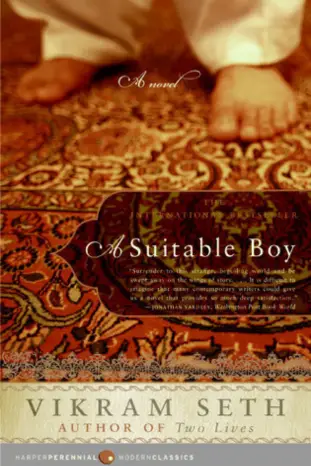
Whenever we talk about modern Indian literature, Vikram Seth is a name that comes to mind first. His magnum opus, A Suitable Boy, is one of the longest novels ever written in a single volume. This great Indian novel is set in post-independence India and is a manifestation of a rapidly changing nation.
It is the story of a young woman, Lata Mehra, and her family’s quest to find a suitable husband. Four interconnected families, the Mehras, Kapoors, Khans, and Chatterjis, are featured. Vikram writes about their struggles, romantic entanglements, and social dynamics.
The family pulls Lata for a traditional arranged marriage, while she desires love and independence. Interestingly, she has three potential suitors: Kabir (a Muslim student she loves), Haresh (a practical shoe businessman), and Joe (a Christian).
Who will she settle for or choose? Well, that’s the story unto itself in this great Indian novel.
The book is not just about finding a suitable boy. Through these stories, it examines post-partition India that involves themes of love, marriage, religious tensions, class differences, and democracy’s growing pains.
Due to its great length and ambitious plot, many critics equate it to India’s equivalent of War and Peace. In 2020, the BBC adapted the novel into a mini-series directed by the critically acclaimed Mira Nair.
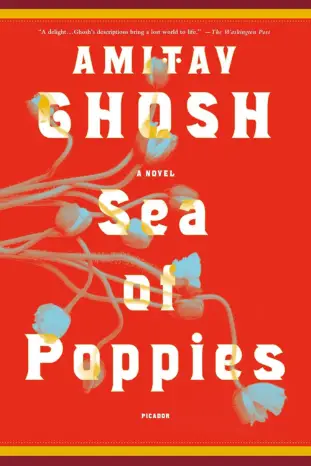
Sea of Poppies is one of the best Indian novels and the first of the Ibis Trilogy. It is also grand in scope, as Ghosh touches on colonialism, migration, and cultural interactions. The novel is set in Bengal, India, during the 1830s, when there was a First Opium War.
Diverse characters from various backgrounds are on an Ibis, a ship ready to transport laborers and convicts from India to Mauritius. One of them is Deeti, a lower-caste woman escaping oppression. Zachary Reid is a mixed-race American sailor, and Neel Ratan Halder is a Bengali landowner, among other characters.
Apart from the individual stories, this great Indian novel touches on the brutal realities of the opium trade. And how the British East India Company forcibly cultivated opium in India and exported it to China. Amid all this, social hierarchies, economic pressures, and colonial mechanisms drive everyone to desperate actions.
This Indian novel was also shortlisted for the 2008 Man Booker Prize. If you can recall, I recently covered this novel in the best historical fiction books. The Praemium Erasmianum Foundation in the Netherlands has awarded Amitav Ghosh the Erasmus Prize 2024 for his work on climate change.
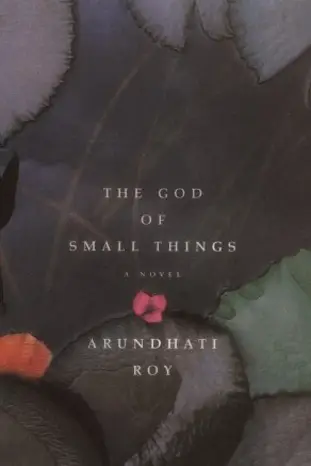
Modern Indian literature and Arundhati Roy are anagrams, as Indian fiction would be incomplete without her. She was recently awarded the 2024 PEN Pinter Prize for being a “Writer of Courage.”
She is one of the few voices of courage who continues to speak against oppression. In her Pen Pinter Prize acceptance speech, she said that ‘no propaganda on earth can hide the wound that is Palestine.’ In India, she faces sedition charges over her 2010 remarks on Kashmir.
The God of Small Things is a prime example of her powerful writing and social commentary. Like the above Indian fiction books, it is also a personal family saga about the social dynamics in Kerala, India.
It is set in the fictional town of Ayemenem in Kerala and follows fraternal twins Rahel and Estha, who live with their divorced mother, Ammu. Their lives change when their half-English cousin Sophie Mol from England visits with her mother, Margaret.
After Sophie Mol’s tragic death, it changes their lives forever. The twins witness and become entangled in adult conflicts they don’t fully understand. The situation is complicated further when Ammu falls in love with Velutha, a lower-caste worker.
Their forbidden relationship becomes a central conflict in the novel, challenging Kerala society’s rigid social and caste boundaries. There’s so much more that you will find enticing when you read this great fiction set in India.
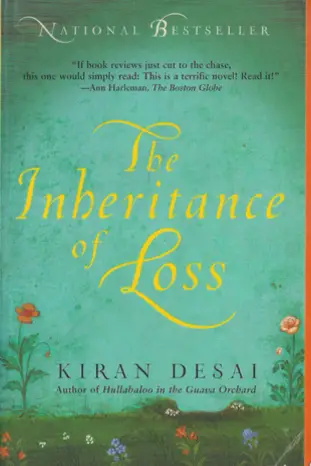
So far, I have written about Indian fiction books set in the North, East, and South of India, respectively. Now, it’s time to move towards the Northeast of India, near the borders of Nepal and Sikkim. And what a beautifully-sad place it is where globalization, immigration, cultural identity, and colonialism past plays out.
For those of you who don’t know, Kiran Desai is the daughter of writer Anita Desai (whose work I also discuss below). It was her second novel, and she won the Man Booker Prize in 2006.
The novel is set in the mid-1980s in a small town, Kalimpong. Jemubhai Patel is a retired Cambridge-educated judge who lives with his granddaughter.
Sai is their cook who has a son, Biju, who is struggling as an illegal immigrant in the US. The novel moves between the cold, isolated mountains and the challenging immigrant experience of Biju (and of Jemubhai Patel in the past) in the United States.
However, the center of attention is the Gorkhaland movement, a political struggle by the Nepali-speaking population for a separate state. The situation gets interesting when Sai becomes romantically involved with her tutor, Gyan. He is a young Nepali man caught between traditional roots and revolutionary aspirations.
It is one of the best Indian novels if you want to explore colonial history, economic inequality, and the challenges of finding identity in a rapidly changing world. Kiran’s tender writing against the backdrop of cold mountains makes it a great winter read.
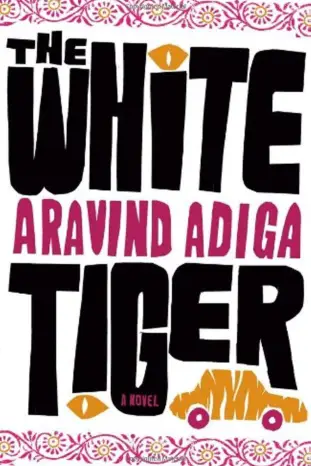
Aravind Adiga is another modern Indian novelist and journalist who needs no introduction. This novel is quite different, as it is a satirical criticism of modern India. It’s no wonder that his sharp wit and critical writing on Indian socio-economic disparities won him a Man Booker Prize.
The novel takes place in rural Bihar and the urban cities of Delhi and Bangalore, two different social landscapes of India. The protagonist is Balram Halwai, who shares his life story through letters to Wen Jiabao, the Premier of China, during his upcoming visit to India.
He comes from a poor village in Bihar and eventually becomes a driver for a wealthy businessman in Delhi. After some time, he became a successful entrepreneur in Bangalore. But to become an entrepreneur, he murders his employer and steals money to start his own business.
However, the novel’s critique of India’s social structure and class system makes it one of the best Indian novels. This great fiction set in India is also available as a Netflix film. You can also check a list of my favorite Bollywood movies.
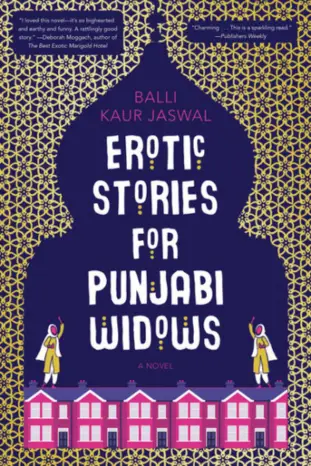
They say never judge a book by its cover. But nobody has ever said that don’t judge a book by its name either. Well, I’m making an exception by saying that don’t judge this novel just because of its name. It’s so much more than erotic stories (and those are too, of course!).
The novel is about the Punjabi community in Southall, West London, where many Indian and Pakistani people live. Nikki Grewal is a British-Punjabi bartender looking to connect with the traditional Punjabi community.
When she takes a creative writing job at a community center, she leads a group of elderly Punjabi widows. These widows start to share increasingly explicitly erotic stories to challenge the conservative social norms.
There’s even a mystery subplot involving a potential honor killing within the community. So, Nikki also gets into investigating the mysterious death of a young Punjabi woman. Overall, it is quite unique and one of the best Indian novels as it discusses sexual repression, cultural expectations, and generational conflicts.
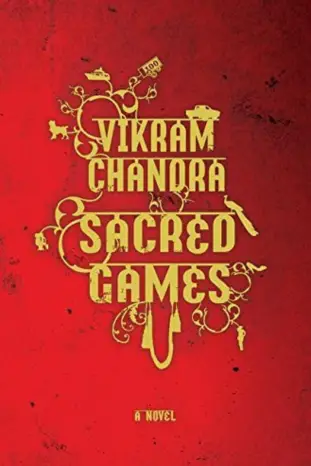
One can afford to ignore some Indian cities or regions when talking about Indian fiction books. Mumbai is a city you can’t ignore. After all, it’s India’s largest city, and financial center and home to the world’s second-biggest movie industry, Bollywood.
It’s quite interesting that when there’s so much money, people, and glamour, crime and gangster life find their way into the complex social landscape. Sacred Games is one of the best Indian novels about modern Mumbai’s criminal underworld, politics, and socio-economics.
The story is about two protagonists: Sartaj Singh, a middle-aged Sikh police inspector, and Ganesh Gaitonde, a powerful Hindu gangster. The story begins when Sartaj receives an anonymous tip about Gaitonde’s location, leading to a confrontation. Gaitonde, cornered in a bizarre bulletproof bunker, shared his story before taking his own life.
But a long story before that sets up a thrilling narrative of his rise from a poor Mumbai neighborhood to becoming a powerful criminal don. The reader experiences Mumbai’s criminal and social underworld, which extends beyond Gaitonde and Sartaj. Netflix India adopted the Sacred Games as a series in 2018.
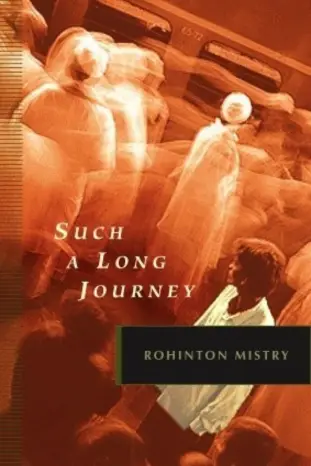
Rohinton Mistry’s origins are quite different from our best novels by Indian authors list as he is a Parsi Indian. His second novel, Such a Long Journey, was shortlisted for the Booker Prize and the Governor General’s Award. Mistry is known for portraying everyday life in Mumbai, particularly within the Parsi community.
The novel is set in Mumbai (then Bombay) in 1971, against the backdrop of the India-Pakistan War and the Bangladesh Liberation War. Gustavo Erra Colaco is a bank clerk living in a middle-class Parsi housing colony in Mumbai. He struggles with his son’s rebellious behavior and financial difficulties.
However, a complex political situation involving government corruption and covert operations draws him into danger. A mysterious request from a former friend in a politically sensitive situation gets him into further trouble.
Overall, it is one of the best Indian novels on family dynamics, political corruption, and the Parsi community’s experience during a challenging historical period.
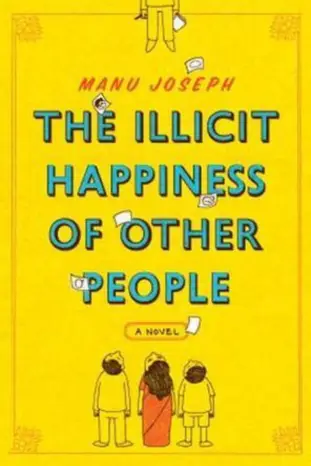
Manu Joseph is among the best Indian novelists and journalists. He is famous for his sharp social commentary and distinctive writing style. The Illicit Happiness of Other People is his second novel. His satirical approach in this novel about social dynamics in urban contemporary India makes it one of the best fiction books in India.
The novel is set in Chennai, South India, during the late 1980s. Chacko’s family has Ousep Chacko, an unemployed journalist, his wife Mariamma, and their son Thoma. What sets the stage is the mysterious suicide of Ousep’s older son, Unni, a talented cartoonist.
His father naturally becomes obsessed with finding the reasons behind Unni’s suicide. So, he investigates Unni’s life through his cartoons, conversations with his friends, and the memories of those who knew him. What he finds is a complex psychological history of his son’s life.
This remains one of the best novels by Indian authors because of its themes of social conformity, mental illness, and artistic expression.
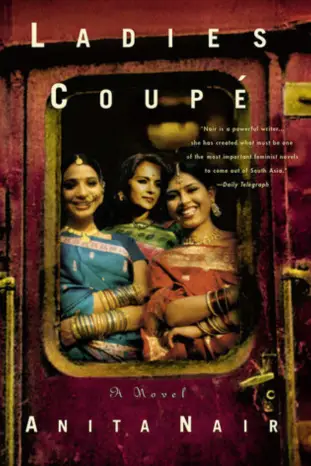
Anita Nair is a contemporary Indian novelist and screenwriter. She mostly writes about women’s experiences in modern India. Ladies Coupé is one of her most celebrated works about women’s inner lives and societal challenges.
Akhila is a 45-year-old unmarried income tax clerk from Chennai. One day, she decides to break free from her life of familial obligations and takes a train journey to Kanyakumari. In the ladies’ compartment, she encounters five women who share their deeply personal stories of marriage, survival, and self-discovery.
Each woman represents a different facet of female experience in Indian society. For example, Margaret Shanti, who stands up to her husband’s infidelity, and Marikolanthu, who survives a traumatic past of sexual abuse.
As Akhila listens to these stories, she reflects on her life of sacrifice and suppression. Her journey becomes literal and metaphorical, challenging her long-held beliefs about personal identity and societal expectations.
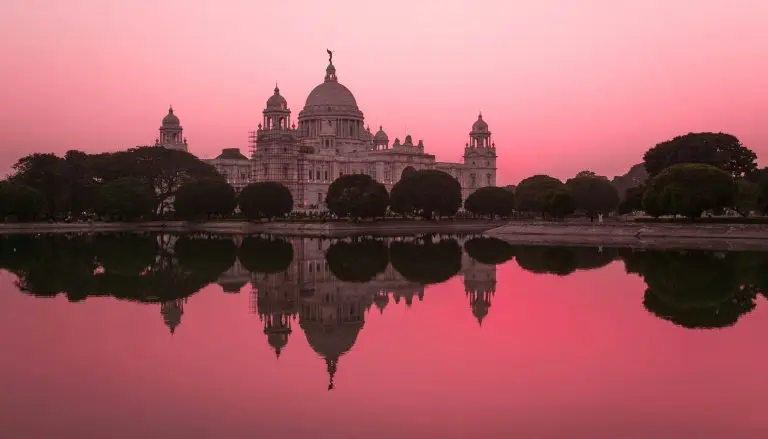
So far, I have covered the best Indian novels from all regions and writers from different backgrounds. Most of you may have already heard about the first five Indian fiction books, as their authors are pretty mainstream.
The latter 5 best Indian novels, apart from number 7, are often overlooked despite bringing a unique perspective to modern Indian literature. And I can safely assume that most of you will not find this novel on any list.
The reason?
It’s pretty different, adventurous, and set on north-east India’s extreme fringes.
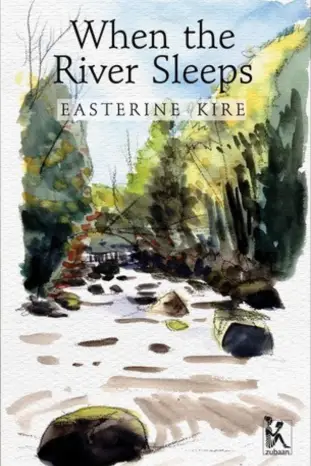
Easterine Kire is a prominent Naga writer from Nagaland who lives in northern Norway. When the River Sleeps is one of her best Indian novels, blending traditional Naga folklore and spiritual mythology. It’s a great way to learn about the indigenous Naga culture and spiritual experiences.
Vilie is a hunter from a Naga village who becomes obsessed with finding a legendary hearthstone. This mystical stone is said to possess extraordinary spiritual power. According to traditional beliefs, Vilie can get this stone only if he connects with the forest spirits.
During his journey, Vilie leaves his village and travels through the dense forests of Nagaland. Along the journey, he encounters various challenges and supernatural beings, testing his spiritual capabilities. His quest transforms him into a spiritual journey of self-discovery, where he confronts human and mystical threats.
This is one of the best novels by Indian authors for its unique narrative approach, deep respect for Naga cultural traditions, and exploration of indigenous spirituality.

There are so many other great fiction books set in India that will take a never-ending list. However, one has to start somewhere and end somewhere. So, I am ending my list of best Indian novels by thinking that this is a diverse list that complements India’s diversity.
If you know of any of the best novels by Indian authors that I should have included, leave a comment!
Do you want global book, music, and movie recommendations straight to your inbox?
Sign up for the newsletter below!

What are the best Chilean Books? If you ask any literary buff about Pablo Neruda, Isabel Allende, and Roberto Bolaño, they will surely know about these literary giants.

We all know how English literature by English writers is easily accessible. And it has been for a long time because a large part of

Now that we’re entering the holiday season, it’s an excellent time for reflection. And what a year it’s been. I changed jobs, got married, and

